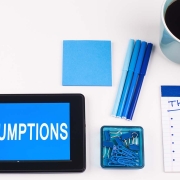5 Steps to a Great Apology
Ever receive an apology that didn’t feel apologetic?
Left you feeling worse?
Angrier?
Infuriated?
In mediation — and in life — I see apologies of all shapes, sizes and colors.
Some feel authentic and cathartic.
Some feel compulsory and meaningless.
Some feel passive-aggressive and irritating.
And some downright hurtful.
“I’m sorry you feel that way”
I remember a parenting mediation. They found one another detestable. If not for their daughter they would be non-existent in each other’s lives, or enemies.
To their credit, they were using mediation to focus on co-parenting. They knew that fostering a positive relationship with each parent took precedence over their petty grievances.
At one point the father violated an agreement made during a previous session.
He listened, respectfully, as she angrily conveyed her disgust. When she was done he said,
I hear you. I’m sorry you feel that way.
You could hear a pin drop.
He felt he showed monumental restraint by listening without defending his actions, and apologizing.
She almost blew a gasket.
What happened?
How to make a bad apology
In this case, the father apologized for how she felt, not for what he did.
This felt dismissive to the mother.
He apologized without taking responsibility.
Which is really a non-apology apology!
If you have ever apologized in any of the following ways, it’s possible that you are an ineffective apologizer:
- “I’m sorry but you also…” (click here to learn why the word “but” is so unhelpful)
- “But” minimizes the apology
- Apologizing when you don’t mean it
- The other person will always know if it’s not genuine
- “I didn’t mean to upset you…”
- The impact of something can be hurtful even if the intention was not
Steps to an effective apology using family conflict management strategies
1. Determine if you regret what you did
Do not apologize to get something.
Do not apologize to get the person off your back.
Do not apologize because someone else wants you too.
Apologize because you are remorseful.
This is the only way your apology will feel authentic.
2. Start by expressing remorse using an “I” statement:
- “I’m sorry that…”
- “I apologize for…”
3. Take responsibility for what you did without justification or blame
- “I’m sorry that I was late…”
- “I apologize for losing my temper and yelling at you…”
4. Empathize with how your actions made the other person feel
- “I’m sorry that I was late. I can see how that upset you and make it difficult for you to make plans…”
- “I apologize for losing my temper and yelling at you. I imagine that made you angry — I would have been angry if you did that to me.”
5. Make amends to rectify the situation
- “I’m sorry that I was late. I can see how that upset you and made it difficult for you to make plans. Next time I’ll leave fifteen minutes earlier, and call you the second there might even be a chance of me being late…”
- “I apologize for losing my temper and yelling at you. I imagine that made you angry — I would have been angry if you did that to me. I’ll make sure I’m calm before talking about stuff like this with you next time…”
Back to my angry parents and the pin-drop silence…
I let the silence linger.
Then, I turned to the father and asked, “why do you think she is upset?”
It took a few moments and some deep breathes.
And then he explained, in his own words, how she viewed his actions and why it was distressing.
I turned next to the mother and asked, “do you feel he understands where you are coming from?” She grudgingly answered that he did.
I summarized the situation, and asked the husband how he wanted to address her concerns.
He looked at the mother and said, “I’m sorry I didn’t talk to you first about what bothered me. I understand how that broke our agreement. I won’t do it again. Next time if I have too I will call an emergency mediation session if I am that concerned with what our daughter tells me.”
And here’s the magical part.
She looked him in the eye and said, “thank you.”
The tension in the room immediately lifted.
Their body language relaxed.
There was an extended pause.
And they moved forward.
The power of an effective apology.
LINKEDIN USERS: LinkedIn does not have the capability for your comments on LinkedIn groups to appear on the original blog post. If you are commenting on a LinkedIn group would you mind copying the comment directly on to the blog so my other readers can benefit from your ideas and reactions? Thank you, thank you, thank you!!





